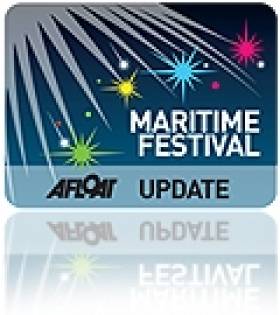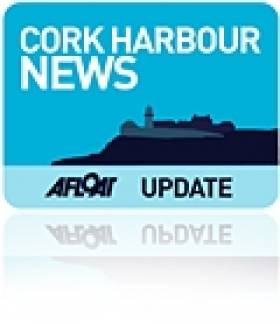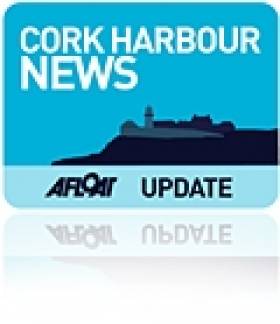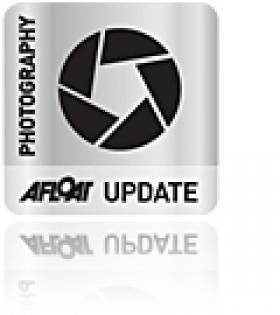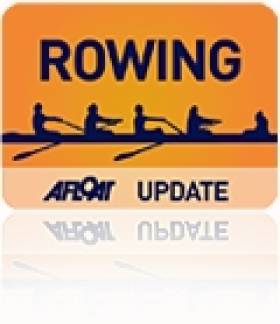Displaying items by tag: ocean to city
Ocean to City Fest Celebrates Cork's Maritime Heritage
#CorkHarbour - Rowboat and kayak trips, harbour cruises, street markets and much more will be in store for Cork Harbour's maritime festival Ocean to City from tomorrow 1 June.
The highlight of the 10-day festival as it's been since 2005 will be An Rás Mór on Saturday 8 June, a 28km rowing race that celebrates Cork's unique maritime heritage and attracts entries from all over the world.
The course begins at Crosshaven and crosses Cork Harbour via Cobh, Monkstown, Passage and Blackrock before reaching the finish line at Lapp's Quay in Cork’s city centre.
An expected 500 Irish and international rowers will compete in a diverse range of vessels including currachs, Irish coastal rowing boats, Bantry longboats, kayaks, Cornish pilot gigs and Chinese dragon boats.
On-street entertainment, food markets and live music will also reverberate from the Lapp's Quay finish line throughout the day before the finale event and prize giving which will take place in the Clarion Hotel.
Other events during the week include the Dragon Boat Challenge tomorrow afternoon from 2pm-8pm at Lapp's Quay and kayak expeditions along the River Lee on Tuesday 4 June and Friday 7 June - not to mention the Cork City Marathon on Bank Holiday Monday 3 June.
For more see the festival programme HERE.
Invitation to Cork Harbour Summer School
The first Cork Harbour Summer School, hosted by Meitheal Mara, takes place on Friday 10 June at the Custom House Offices of the Port of Cork.
The school, to be opened by Minister for the Marine Simon Coveney, will bring together speakers from the principal authorities with responsibility for the harbour and people with a vision for its future.
The summer school will encourage a better appreciation of Cork Harbour as a resource, with a focus on subjects from leisure in a working port to history and heritage, marine recreation, leisure tourism, and getting people afloat.
There will also be ample time for mingling and exchange of views informally between contributors and audience, which is an important part of the school.
The Cork Harbour Summer School is part of Ocean to City, Cork’s maritime festival with a programme of activities from Friday 3 to Sunday 12 June.
The event is free for individuals. RSVP no later than Friday 3 June.
More details about the Cork Harbour Summer School programme are available HERE.
Ocean to City, Cork Harbour's annual maritime festival, takes place this year from 3-12 June.
The yearly celebration of Cork’s maritime history and its unique harbour begins on Friday 3 June when members of the public can voyage through the city by kayak, enjoy the thrill of a sea safari trip around Cork Harbour or follow TG4’s Padraig Ó Duinnín as he presents a historical walking tour and talk on rowing in Cork.
The highlight of the festival, An Rás Mór, takes place on Saturday 4 June and will see boats of all sizes row 15 nautical miles from Crosshaven via Cork Harbour, Monkstown and Blackrock before finishing at the boardwalk in Lapps Quay in Cork.
Around 400 Irish and International rowers will compete in a diverse range of vessels including dragon boats, kayaks, currachs, Celtic long boats, Cornish pilot gigs and Irish coastal rowing boats.
Sunday 5 June will see a special 10km kayak race through the city centre. The Irish Naval Service flagship LE Orla will also offer free public tours, while Meitheal Mara will host a guided voyage around the island of Cork by a variety of small craft.
To mark the Cork Harbour School and Heritage Trails Weekend from from 9-11 June, a series of events highlighting the attractions of Cork Harbour, both water and land based, will take place.
Activities include a summer school on the theme of 'recreation in a working port', which will be held in the Port of Cork on Friday 10 June and opened by Minister for the Marine Simon Coveney.
For more details visit www.oceantocity.com.
Meitheal Mara’s ‘Boatyard Open Day’
Topics will be on classic and traditional boat repair, restoration and build boatbuilding and lofting to varnish and tarring. The exhibition will feature slideshows and a boat display of a folk boat, Crosshaven clinker rowing punt, thullier sailing clinker punt, Valentia carvel seine boat follower, Rinn Rua, pram dinghies, currachs and canoes.
Also on hand will be Siubhán McCarthy who will be talking about the 'Ocean to City' race and what's happening in Cork harbour. For information contact Meitheal Mara Tel: (021) 4316813 or [email protected]
Ocean To City Photo Gallery Here!
Photographs by Bob Bateman of yesterday's Ocean to City rowing race in Cork Harbour are up-loaded on the Afloat gallery here.
Ten Days 'til Ocean to City Race deadline
There are just ten days remaining for you to get your entry in for the annual Ocean to City race starting in Crosshaven and finishing in Cork City.
The 15-mile race starts at 11.30am at Royal Cork YC on June 12, passing Cobh, Monkstown and Passage West before heading on into Lough Mahon, with the finish at Lapps Quay.
This year's race will feature Atlantic rower Peter Williams and entry is €30 per person, with a €10 entry fee for junior rowers.
More details on the official race website.
Click this link for Irish Rowing detailsClick this link for the Latest Rowing News



























